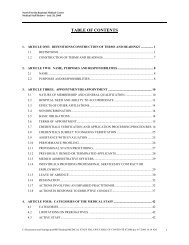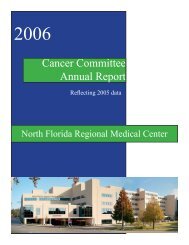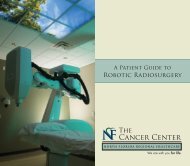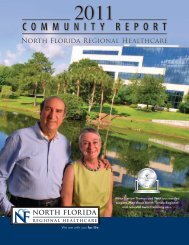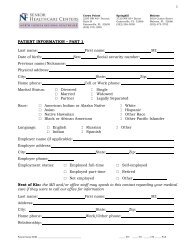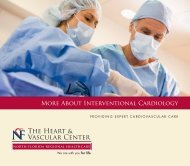Rules and Regulations 2013 - North Florida Regional Medical Center
Rules and Regulations 2013 - North Florida Regional Medical Center
Rules and Regulations 2013 - North Florida Regional Medical Center
You also want an ePaper? Increase the reach of your titles
YUMPU automatically turns print PDFs into web optimized ePapers that Google loves.
<strong>North</strong> <strong>Florida</strong> <strong>Regional</strong> <strong>Medical</strong> <strong>Center</strong><br />
<strong>Rules</strong> And <strong>Regulations</strong><br />
prescriber <strong>and</strong> new orders written.<br />
In the case of irreversible illness of a patient in which death is imminent where<br />
emergency procedures to treat cardiac or pulmonary arrest may not be desired, the<br />
physician, after appropriate consultation with the patient <strong>and</strong>/or family <strong>and</strong> after<br />
adequate documentation in the chart, shall write the order "Do Not Resuscitate".<br />
Specific guidelines for this order are contained within the appropriate Hospital<br />
policies <strong>and</strong> procedures.<br />
D.5.<br />
Medication Orders - All drugs <strong>and</strong> medications administered to patients shall be<br />
those listed in the latest edition of: NFRMC Formulary, United States<br />
Pharmacopoeia, National Formulary, <strong>and</strong> American Hospital Formulary Service.<br />
Drugs of bonafide clinical investigations may be exceptions. These shall be used<br />
in full accordance with the Statement of Principle involved in the use of<br />
Investigational Drugs in Hospitals <strong>and</strong> all regulations of the Federal Food <strong>and</strong><br />
Drug Administration.<br />
The physician or Allied Health Professional must write a complete medication<br />
order consisting of drug name, dosage, route <strong>and</strong> frequency. Orders which do not<br />
contain all these elements cannot be carried out until completed by the physician<br />
or Allied Health Professional. (6/27/11)<br />
Orders for controlled substances must include a hospital issued unique<br />
identification number or legibly printed name along with the physician or Allied<br />
Health Professional signature. All Allied Health Professionals must write legibly<br />
the name of the specific supervising physician as well as the name of the Allied<br />
Health Professional at the time the order is written. (6/27/11)<br />
Pharmacy <strong>and</strong> Therapeutics:<br />
develops <strong>and</strong> maintains surveillance over medication safety, utilization<br />
policies <strong>and</strong> practices including establishing systems <strong>and</strong> education<br />
programs to prevent medication errors;<br />
monitors all reported drug reactions <strong>and</strong> drug errors in order to define<br />
system failures; <strong>and</strong><br />
provides a quarterly report, consisting of statistical data involving drug<br />
reactions <strong>and</strong> drug errors, their probable causes <strong>and</strong> actions taken to<br />
improve systems <strong>and</strong> follow-up evaluation to assure the process<br />
improvement is maintained.<br />
D.6.<br />
Medication Administration - Certain medications may be administered only by a<br />
physician or under his/her direct supervision when given by the I.V. push method.<br />
These medications include those in which no FDA approval is available.<br />
20



